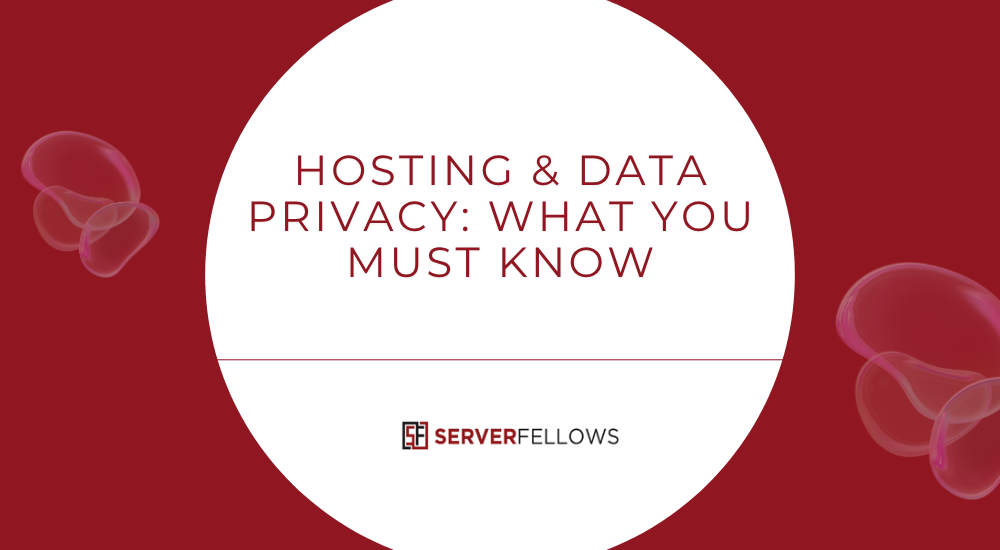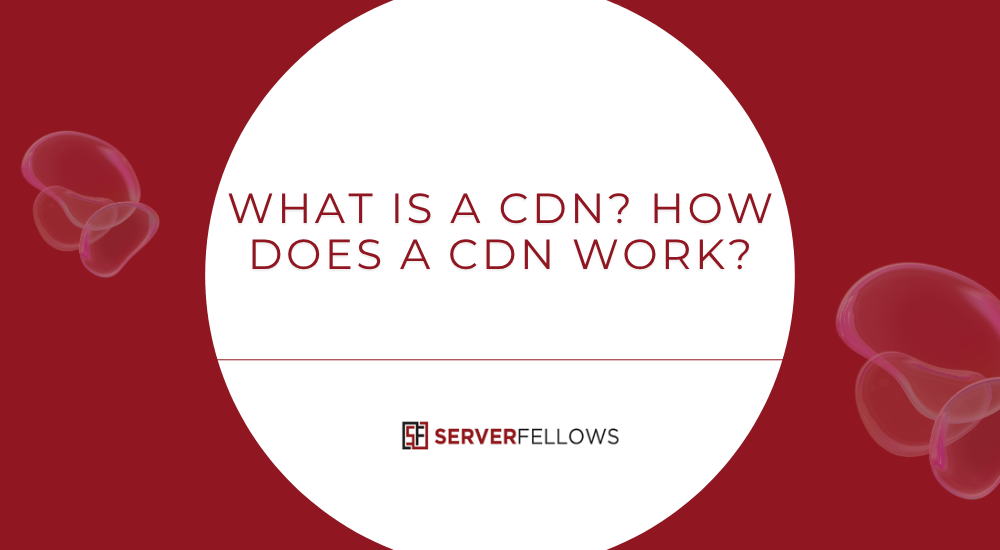
Hosting and Data Privacy: What to Know
Data privacy has become one of the most critical topics in the digital age. Every time users share personal details, subscribe to a service, or make a purchase, they trust that the business behind the website will protect their information. This trust forms the foundation of the digital economy, and it starts with the right hosting provider.
In this comprehensive guide, we explore hosting and data privacy, how they are connected, and what businesses can do to safeguard both their customers’ and their own sensitive information.
Understanding the Link Between Hosting and Data Privacy
The term hosting and data privacy refers to how web hosting providers manage, store, and secure digital information. Your hosting provider is essentially the guardian of your website data—every file, database, and user detail lives on their servers. If those servers are not properly secured or located in jurisdictions with weak privacy laws, sensitive data may be at risk.
A robust hosting environment ensures that:
- Personal information remains protected from unauthorized access.
- Customer data isn’t misused, shared, or sold without consent.
- Legal and regulatory standards for data protection are maintained.
Choosing a host, therefore, is not just a technical decision—it’s a privacy decision.
Why Data Privacy Matters More Than Ever
1. Customer Trust Is Built on Security
When customers provide their personal information—emails, passwords, or payment details—they do so on the assumption that the website takes privacy seriously. Breaches or leaks can destroy that trust overnight. Reliable hosting helps prevent these incidents through encryption, monitoring, and access control systems.
2. Global Compliance Standards Are Tightening
Across the world, data protection laws like GDPR and similar frameworks are enforcing strict penalties for companies that mishandle user data. Hosting directly influences compliance because where and how data is stored determines your legal obligations. Businesses operating across multiple regions must ensure their hosting aligns with these standards.
3. Breaches Are Expensive
Beyond reputational damage, data breaches come with hefty costs—ransomware payouts, forensic audits, and customer compensation. A secure hosting provider with strong privacy policies helps prevent these financial disasters.
Hosting Features That Strengthen Data Privacy
The best way to ensure compliance and data protection is to host your website on a platform designed for security. Here are the top features that directly impact hosting and data privacy:
1. Data Center Security
Look for hosting providers that maintain modern, physically secure data centers. Facilities should include biometric access controls, surveillance, redundant power systems, and climate protection. The physical layer of security is just as important as the digital one.
2. SSL Certificates and HTTPS
Secure Socket Layer (SSL) encryption is no longer optional. It ensures all communication between a user’s browser and your server is encrypted, preventing interception or tampering. Without SSL, private information like passwords or credit card numbers can easily be exposed.
3. Daily Automated Backups
Data loss can occur due to cyberattacks, hardware failure, or even human error. Daily automated backups mean your website can be restored instantly, ensuring business continuity while keeping historical data intact and protected.
4. Firewalls and Intrusion Detection
Advanced firewalls act as gatekeepers that filter out malicious traffic. Combined with intrusion detection systems, they provide real-time alerts and block suspicious behavior before it causes harm.
5. DDoS Protection
Distributed Denial of Service (DDoS) attacks can overwhelm servers and make websites inaccessible. Hosting services that include DDoS protection safeguard both uptime and user data integrity during such events.
6. 24/7 Monitoring
Constant server monitoring ensures any anomaly is detected and resolved before it escalates. Whether it’s unauthorized access attempts or unusual bandwidth usage, proactive vigilance keeps your data private.
7. Access Controls and Role-Based Permissions
A secure hosting setup limits who can access your site’s files and databases. With role-based permissions, only authorized users can modify critical configurations, reducing internal risks.
Data Privacy Compliance and Hosting Responsibilities
Compliance is not just a matter of paperwork—it’s an ongoing technical practice. Hosting providers play a central role in helping businesses meet privacy obligations.
1. Localized Data Storage
Depending on your audience and region, some privacy regulations require that data be stored within specific jurisdictions. Choosing a host that offers local or region-specific servers ensures you remain compliant.
2. Data Minimization and Retention
Reputable hosting companies adopt data minimization strategies—storing only what’s essential and automatically deleting redundant data after a set period. This reduces exposure in case of an incident.
3. Encryption at Rest and in Transit
Comprehensive encryption ensures that even if unauthorized users gain access to data, it remains unreadable. Encryption should apply both during transmission (when data moves across networks) and at rest (when stored on servers).
4. Transparent Privacy Policies
Hosting companies committed to privacy provide clear documentation outlining how they handle, store, and process data. Transparency is a cornerstone of ethical data management.
5. Third-Party Integrations
Many websites rely on third-party tools for analytics, email, or CRM. A privacy-conscious hosting provider ensures these integrations comply with privacy standards and that no data is shared without consent.
Common Mistakes Businesses Make About Hosting and Data Privacy
Mistake 1: Assuming All Hosts Offer Equal Security
Not every hosting provider is built for privacy. Some prioritize cost over compliance, neglecting encryption or proper monitoring. Always review your host’s privacy certifications and audit reports.
Mistake 2: Relying Solely on SSL
While SSL is vital, it is only one layer of protection. Businesses must implement additional measures like firewalls, data backups, and restricted administrative access.
Mistake 3: Ignoring Backup Redundancy
Some hosts offer backup solutions stored on the same server as your primary data. If that server fails, both the live data and the backup are lost. Reliable hosting providers store backups on independent systems or cloud environments.
Mistake 4: Overlooking Employee Access
Even the best hosting infrastructure can fail if internal practices are weak. Limit employee access to sensitive data, and ensure all admin accounts have strong passwords and two-factor authentication.
Mistake 5: Not Reviewing Hosting Terms Regularly
Hosting terms and privacy policies evolve. Review them regularly to ensure they still align with your compliance and operational needs.
FAQs About Hosting and Data Privacy
1. Do all hosting providers comply with data privacy standards?
No. Compliance depends on each provider’s infrastructure and policies. Always choose one that publicly lists its security measures and certifications.
2. Is SSL enough to protect customer data?
No. SSL encrypts data in transit but doesn’t safeguard stored data or prevent unauthorized access at the server level.
3. Does hosting location affect privacy compliance?
Yes. Where your data resides determines which laws apply. Choose servers in regions that align with your data protection obligations.
4. Can small businesses manage privacy without an IT team?
Yes. Many modern hosting providers automate security tasks, including monitoring, patching, and backups, making data privacy accessible even to small teams.
5. How often should businesses review their hosting setup?
At least once a year, or whenever major regulatory changes occur. Regular reviews ensure ongoing compliance and security.
Future of Hosting and Data Privacy
The landscape of hosting and data privacy is continuously evolving. Technologies such as edge computing, decentralized storage, and zero-trust architecture are redefining how websites handle sensitive information.
As businesses rely more on digital infrastructure, hosting providers are becoming the first line of defense in protecting personal data. Privacy will no longer be a differentiator—it will be a requirement.
Investing in a secure hosting platform today helps future-proof your business against tomorrow’s risks.
Conclusion
Data privacy is not a luxury—it’s an obligation. Choosing the right hosting provider can mean the difference between compliance and catastrophe.
Your hosting infrastructure influences everything from how data is stored to how it’s accessed and shared.
A reliable hosting partner like Serverfellows.com offers robust data protection, advanced security features, and transparent privacy practices designed to help businesses operate confidently in the digital world.
When it comes to hosting and data privacy, make sure your foundation is strong. Protect your customers, your brand, and your future—starting with where your data lives.


